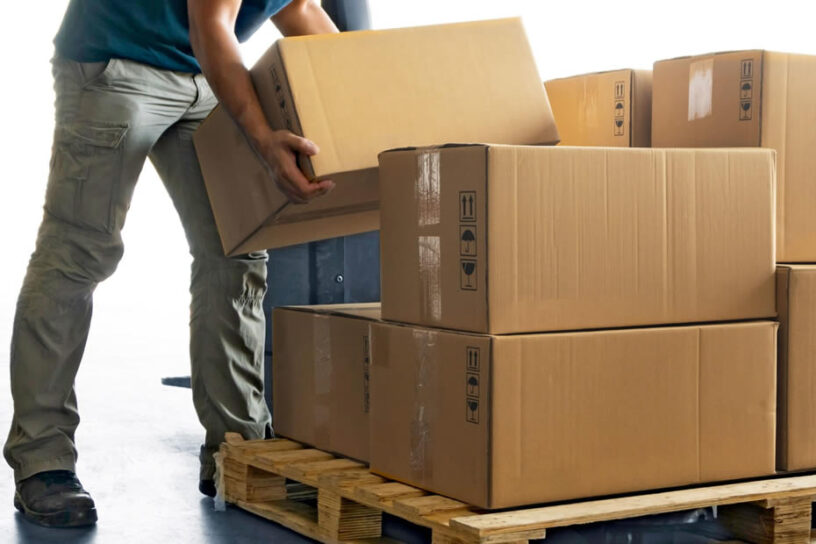Table of Contents:
In the days when I was a lad, when everything was in black & white (the 1960’s) or orange (the 1970’s), if you wanted to buy anything, you usually went to a shop. If you wanted clothes, food, home décor and anything else attributed to home, you went to the department store, or the local shop and you bought it. A bit later on in the 1970’s, bigger shops (called superstores) and supermarkets sprang up offering the consumer more choice than ever before. If you wanted to buy a car, you went to a car showroom. If you wanted a new sofa, you went to the furniture superstore (where they probably had a sale on). You get the picture.
You had to choose the right time to go to the shop, as the greater majority of shops closed on Wednesday afternoons (because they were open on Saturday mornings), and of course all shops were closed on Sunday.
The “other” stuff
Some things you couldn’t take home from a shop yourself. The big stuff. If you wanted a large object, or a large amount of objects; such as a new garden shed, a new bed or a few 8 foot lengths of 2″x4″ timber, you had to have it delivered. You’d go to a shop, or a lumber yard, order and pay for your goods and then arrange delivery.
Alternatively, if you were feeling brave, you might use the telephone (if you had one, otherwise it was the phone box down the street) and order something over the phone.
Then there were the advertisements at the back of newspapers and magazines, offering a more eclectic style of goods to the discerning customer. If you had a copy of Woman’s Own, or a Sunday newspaper, you could cut out and fill in a form to order your goods (the infamous all-in-one slipper to keep your feet warm) and send that away with your name and address, and a postal order for the correct amount (plus shipping), in four easy installments.
Or of course, the good old catalogue. Get a copy of the catalogue from your local representative, choose the item of your dreams and it would be duly ordered for you and delivered in due course. With low payments of x pence over 50 weeks. And you’d pay twice as much for it.
All of which had to be delivered somewhere – normally within a certain timescale.
The business day
Hence the introduction of the business day.
The greater majority of banks, stock markets, shops and other businesses worked within a standard defined timescale. Usually Monday to Friday, from 9am to 5pm (or slight variations thereof).
Interlude: Yes, I know there are exceptions, like hospitals, miners, some factories etc. I'm ignoring those for the purposes of this post! ;)
If you wanted anything from those businesses, you contacted them during their business hours. For the businesses that delivered your goods, they worked to the same philosophy: delivery drivers generally worked Monday to Friday, from 9am to 5pm.
When you ordered your new bed, you were informed that the delivery of your goods would take place in three to five business days. If you ordered (and paid for) your bed on Thursday afternoon, you could expect your delivery between three and five business days, which would be Tuesday to Thursday the following week. Tuesday being the third business day.
Technology happened
Then the world gradually became the world we are currently living in. Technology has allowed us to use apps to order things, and almost everyone has (or has access to) a mobile phone. The internet blesses us with a huge expanse of shops online. Since the enforced lockdown of the Covid-19 pandemic, the amount of online stores has exploded; shops selling anything and everything from food to cars, and you can get these from anywhere in the world. You can order most things online nowadays (usually from Amazon! 😉 ) and you can get it from the most diverse of places.
The opportunities that this global market has presented has allowed plenty of small businesses to create their little shops online too, selling anything from jewellery to office desks to bespoke PVC outfits.
Delivered to your door
The increase in online retailers, and businesses with an online portal, has in turn made the courier, or delivery service grow. Gone are the days when you had to wait for the shop delivery van to turn up with your goods. It’ll no doubt be sent via Amazon, DPD, DHL, EVRI, or by Royal Mail. In any country. (Other delivery services are available.)
And your delivery could be made at any time, on any day. Most delivery services now work around the clock: seven days a week, 52 weeks a year. You can get your Amazon delivery on a Sunday, your DPD on a Saturday. At any time during the day; tracked of course, by an app. You can book your Tescos delivery through their website, or their app, so you know you’ll be in when they deliver the food you didn’t want.
And yet.
A business day. Still.
It’s been four years (at time of writing) since the Covid pandemic, and the rapid expansion of home delivery processes and methodologies. And yet there are still businesses that cite their delivery options using business days.
It puzzles me why the business day still exists. In this age of global, round the clock consumerism, the vast choice of goods for sale online (and the impatience of the majority of people nowadays) deliveries can be made next day, and (sometimes) with free postage.
We all know what a weekend is: let’s just do away with the business day and tell us when – in proper days – my stuff’s going to be delivered. Because let’s face it, if you’re going to take three business days, I can probably get the same thing delivered next day, for free, from elsewhere.

